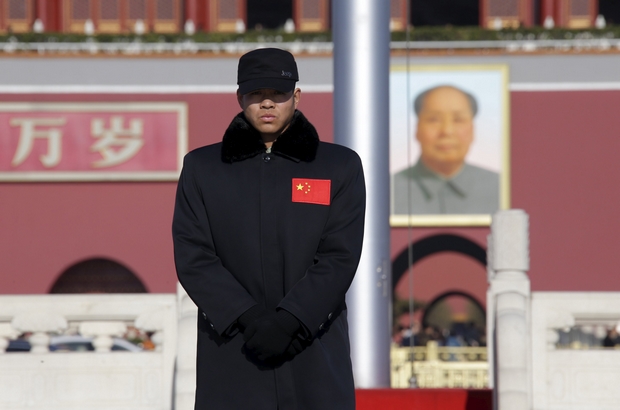
A human rights activist and former columnist who fled China and leaked confidential documents detailing Communist party propaganda efforts has vanished in Thailand.
Li Xin has been missing for 10 days after leaving Thailand for Laos with the hope of returning to Thailand to apply for political asylum, said his wife, Shi Sanmei.
Li, a former writer for the Southern Metropolis Daily, a semi-independent newspaper, arrived in Thailand from India on Jan 1 and boarded a train to the northeastern border town of Nong Khai where he tried to enter Laos, said Shi.
"When I heard he had gone missing, I was very shocked," Li's friend, Liu Xuehong, a Thailand-based activist, told Reuters. "I think he's in danger now and has probably been arrested."
Shi said Thai police refused to accept her report of her husband's disappearance, asking her to contact the Chinese embassy.
Pol Gen Dechnarong Sutticharnbancha, a spokesman for the Royal Thai Police, said he had no knowledge of Li's case.
Li's disappearance follows other cases in which critics of Beijing have gone missing or been deported by Thailand’s junta, which has formed stronger ties with Beijing at a time when the Western world continues to condemn the lack of movement to restore democracy.
Li had been trying unsuccessfully for months to claim political asylum in a western country, his wife told the UK-based newspaper The Guardian.
She said Li had fled to New Delhi last October after Chinese state security tried to blackmail him into spying on other activists, threatening him with spying charges if he did not comply.
“He was recruited to be a source before. But he left to seek political asylum,” Shi told The Guardian by phone from China. “I think he was brought back by the Communist party.”
Once in India, Li leaked documents from his work at the newspaper, including a government-written list of topics that were off-limits to journalists. India would not accept his application and he was also rejected by the US embassy after applying for a tourist visa, Radio Free Asia reported.
Li travelled this year to Thailand, a long-time hub for Chinese fugitives trying to make it to the west, where he boarded a train to the northeastern border to enter Laos. His wife has since been unable to reach him.
“He got on a train from Bangkok to Nong Khai at 8.36pm on Jan 10. We had been in touch those days. The next day, around 7.40am, we lost contact,” Shi said.
“The [Chinese] authorities said they can arrest him at any time and charge him for endangering state security and for being a spy. He is scared. He couldn’t stay in China any more. He has been trying to get out from China.”
In October, a Hong Kong publisher, Gui Minhai, who wrote gossipy books on China’s rulers went missing in Thailand and reappeared last week tearfully "confessing" on Chinese state television to a hit-and-run crime.
Several officials from Thailand’s Office of the Prime Minister have recently visited the Pattaya apartment owned by Gui to gather information on the days before he vanished, a source with knowledge of the visit told The Guardian on condition of anonymity.
While it was not clear what the officials did exactly, the move marks the first visit to the apartment from police or authorities despite requests from Sweden, where he holds citizenship. Friends and family of Gui believe Chinese security agents abducted him and accuse Thai authorities of complicity or at least overlooking his alleged kidnapping.
A spokesman for the Thai government did not immediately comment on the disappearance of Li or the alleged visit by officials to Gui’s apartment. He said he would look into the matter and reply later.
In November, two Chinese men who were officially registered as refugees with the United Nations were arrested and repatriated by Thai authorities just days before they were supposed to be resettled in Canada, infuriating the UN refugee agency.
Thailand also forcefully deported 109 ethnic Uighur Muslims back to China in July. The UNHCR said at the time that the expulsion was “a flagrant violation of international law”.
Hundreds, possibly thousands, of the Turkic-speaking minority have fled unrest and persecution in China’s western Xinjiang region, where hundreds of people have been killed. Many have travelled through southeast Asia.